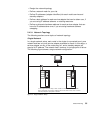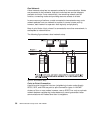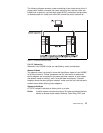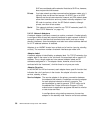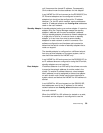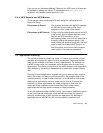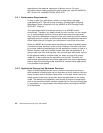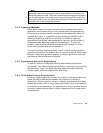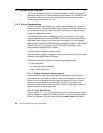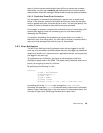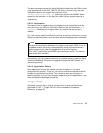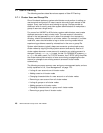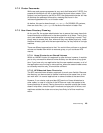
Cluster Planning 43
2.5.3 Licensing Methods
Some vendors require a unique license for each processor that runs an
application, which means that you must license-protect the application by
incorporating processor-specific information into the application when it is
installed. As a result, it is possible that even though the HACMP for AIX
software processes a node failure correctly, it is unable to restart the
application on the failover node because of a restriction on the number of
licenses available within the cluster for that application. To avoid this
problem, make sure that you have a license for each system unit in the
cluster that may potentially run an application.
This can be done by “floating licenses”, where a license server is asked to
grant the permission to run an application on request, as well as “node-locked
licenses”, where each processor possibly running an application must have
the licensing files installed and configured.
2.5.4 Coexistence with other Applications
In case of a failover, a node might have to handle several applications
concurrently. This means the applications data or resources
must not
conflict
with each other. Again, the Application Worksheets can help in deciding
whether certain resources might conflict with others.
2.5.5 Critical/Non-Critical Prioritizations
Building a highly available environment for mission-critical applications also
forces the need to differentiate between the priorities of a number of
applications. Should a server node fail, it might be appropriate to shut down
another application, which is not as highly prioritized, in favor of the takeover
of the server node’s application. The applications running in a cluster have to
be clearly ordered and prioritized in order to decide what to do under these
circumstances.
Application start and stop scripts have to be available on the primary as
well as the takeover node. They are not transferred during synchronization;
so, the administrator of a cluster has to ensure that they are found in the
same path location, with the same permissions and in the same state, i.e.
changes have to be transferred manually.
Note



